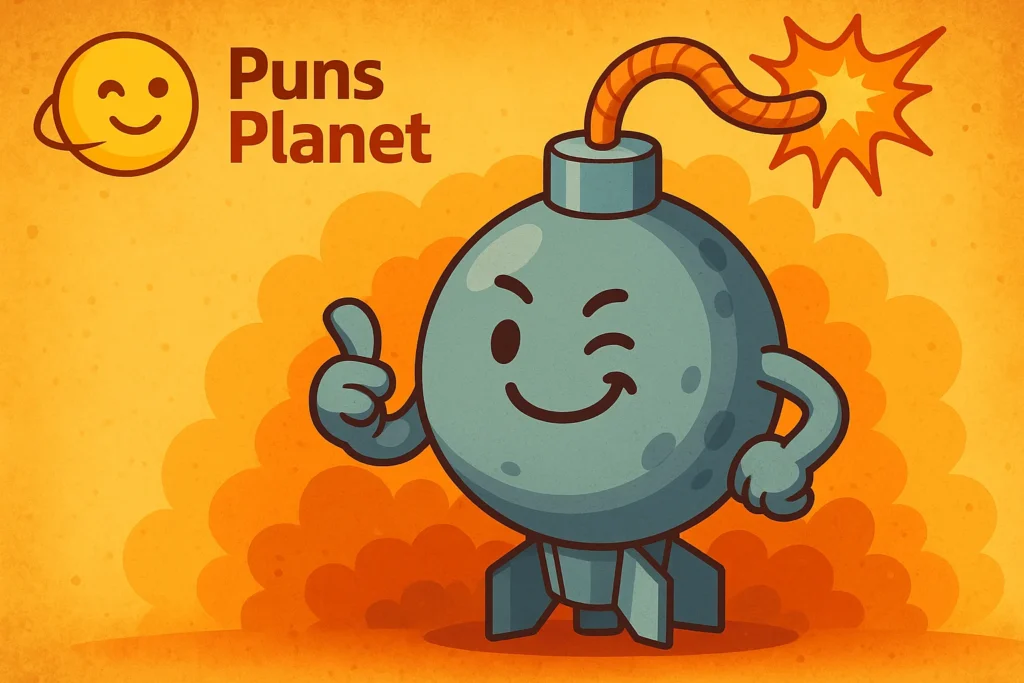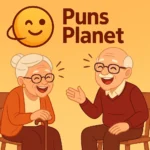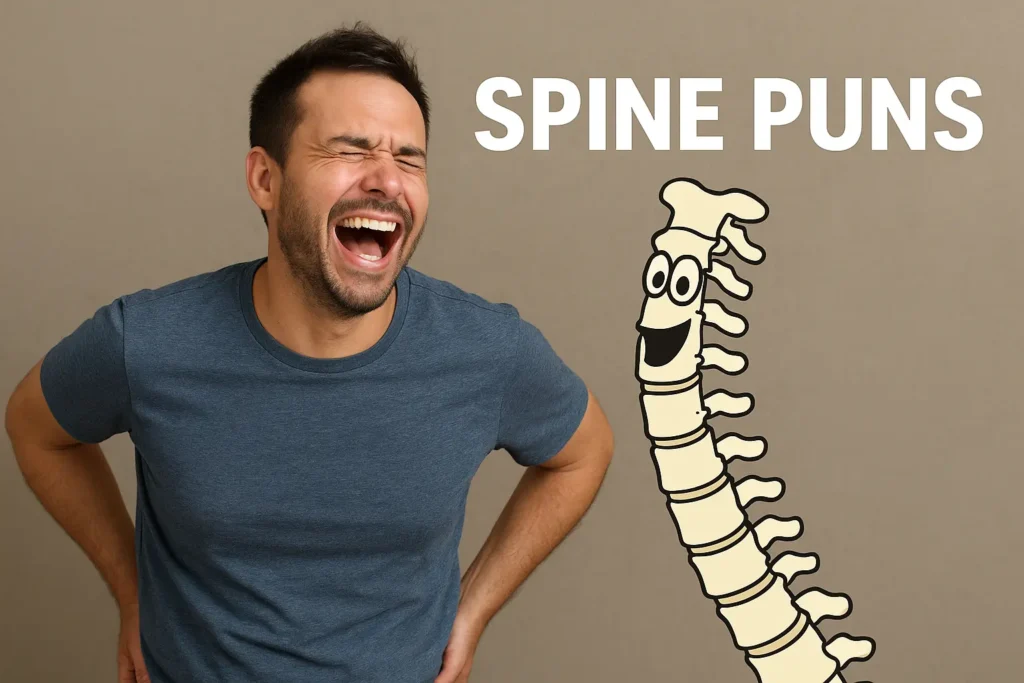Atoms may be the building blocks of the universe, but they also make the perfect setup for some seriously funny humor. Our collection of atomic jokes is filled with witty one-liners, clever puns, and laugh-out-loud wordplay about atoms, energy, and science. Whether you’re a chemistry nerd, a physics fan, or just love a smart pun, these jokes are guaranteed to spark a reaction.
From explosive punchlines about fission and fusion to silly puns about electrons, protons, and neutrons, this list has jokes that will entertain students, teachers, and science enthusiasts of all ages. They’re clean, family-friendly, and perfect for classrooms, science fairs, or just sharing a laugh with friends.
Atomic jokes don’t just make you laugh—they also make learning fun. They’re great for breaking the ice during lessons, lightening up a study session, or even adding a nerdy twist to your social media captions.
So if you’re looking for humor that’s positively charged, this roundup of atomic jokes will deliver. Because laughter may not be a scientific formula, but it’s definitely the best kind of reaction.
Table of Contents
ToggleAtom Antics ⚛️
Why don’t atoms ever lie? They make up everything.
My atom told me a joke—it had no mass appeal.
Why was the atom shy? Low energy.
Atoms love comedy—it’s elemental.
Why did the atom blush? Too much bonding.
Atoms never fight—they just react.
Why was the atom always calm? Stable personality.
Splitting atoms = splitting sides.
Why did the atom go to therapy? Fear of bonding.
Atoms are humble—they’re down to basics.
Proton Puns ➕
Protons are always positive.
Why did the proton smile? Good charge.
Protons are funny—they attract jokes.
Why was the proton proud? Center of the atom.
My proton told me a joke—it had positive energy.
Protons never argue—they just stay charged.
Why did the proton laugh? Neutron pun.
Protons and comedy = strong attraction.
Why was the proton blushing? Too much attention.
Protons love humor—they’re nucleus of fun.
Electron Energy ➖
Why did the electron frown? Negative vibes.
Electrons are shocking—they spark laughter.
Why was the electron funny? It orbited jokes.
Electrons love parties—they jump levels.
Why did the electron blush? Got excited.
Electrons are comedians—they deliver current events.
Why was the electron shy? Low voltage humor.
Electrons love to flow with jokes.
My electron told me: “Stay grounded.”
Why did the electron laugh? Potential humor.
Neutron Notes ⚫
Why don’t neutrons pay? No charge.
Neutrons love jokes—they’re neutral but funny.
Why was the neutron calm? No tension.
My neutron told me a joke—it was free.
Why did the neutron laugh? Balanced humor.
Neutrons never argue—they don’t take sides.
Why was the neutron shy? Invisible role.
Neutrons are solid—they hold it all together.
Why did the neutron giggle? Stable nucleus.
Neutron puns are unbiased laughs.
Nuclear Nonsense ☢️
Why did the reactor laugh? Fission joke.
Nuclear humor = explosive fun.
Why was the nucleus blushing? Center of attention.
Splitting atoms = splitting sides.
Why did the reactor smile? Fusion success.
Nuclear puns = chain reactions of laughter.
Why was the uranium proud? Heavy humor.
Reactors love jokes—they’re critical.
Why did the isotope giggle? Half-life joke.
Nuclear jokes glow with fun.
Big Bang Banter 💥
Why did the universe laugh? Great start.
Big Bang = cosmic punchline.
Why was the galaxy giggling? Star jokes.
My universe began with laughter.
Why did atoms spread out? Party expansion.
Big Bang jokes = universal humor.
Why was the cosmos smiling? Comedy at scale.
Stars love Big Bang—it’s their origin story.
Why did the scientist laugh? Explosion of puns.
Big Bang = biggest setup ever.
Chemistry Chuckles 🧪
Why did the chemist laugh? Periodic pun.
Atoms = chemistry comedians.
Why was the lab giggling? Great reactions.
Chemistry jokes bond people.
Why did the molecule blush? Strong attraction.
Lab coats hide laughter.
Why was the experiment funny? Reaction guaranteed.
Chemists love puns—they’re elemental.
Why did the flask giggle? Bubbly humor.
Chemistry = compound comedy.
Bonding Banter 🔗
Why did the covalent bond smile? Shared everything.
Ionic bonds are funny—they’re attractive.
Why did the bond blush? Strong connection.
Molecules = social atoms.
Why was the bond laughing? Chemistry joke.
Strong bonds = stable humor.
Why did the weak bond giggle? Easily broken.
Bonds keep jokes together.
Why was the hydrogen proud? First to bond.
Bond jokes = connected laughter.
Periodic Puns 📊
Why did the table laugh? Periodically funny.
Elements love jokes—they’re natural.
Why was hydrogen funny? Always #1.
Oxygen’s favorite joke? O2 funny!
Gold told me a pun—it was AU-some.
Helium puns make everyone laugh. He He He.
Why did the sodium giggle? Na-thing serious.
Periodic humor = organized fun.
Why was carbon proud? Life of the party.
Every element contributes to comedy.
Lab Laughs 🧑🔬
Why did the scientist giggle? Atomic joke.
Labs = comedy experiments.
Why was the beaker funny? Full of puns.
My lab goggles see humor.
Why did the burner laugh? Too much heat.
Labs love laughter—it’s reactive.
Why did the sample blush? Tested positive for fun.
Science fair = pun contest.
Why was the whiteboard proud? Full of formulas and jokes.
Labs = serious science + silly humor.
Quantum Quirks 🌀
Why did the quantum particle laugh? Uncertainty was funny.
Quantum humor = here and there.
Why was Schrödinger’s cat giggling? Alive with puns.
Quantum jokes exist until observed.
Why did the quark blush? Fundamental humor.
Superposition = laughing and not laughing.
Why was the particle shy? Too wavey.
Quantum mechanics = mechanics of comedy.
Why did the physicist smile? Entangled with puns.
Quantum jokes are small but powerful.
Fusion Funnies ☀️
Why did the sun laugh? Nuclear fusion pun.
Fusion = jokes combined for energy.
Why was the star giggling? Bright humor.
Fusion reactors glow with comedy.
Why did hydrogen smile? Two’s company.
Fusion jokes = endless energy laughs.
Why was helium funny? It’s lighter.
Fusion is pun power multiplied.
Why did the plasma laugh? Hot joke.
Fusion humor is out of this world.
Fission Funnies 🔥
Why did uranium laugh? Splitting joke.
Fission jokes = chain reactions of fun.
Why was the neutron giggling? Triggered the punchline.
Fission reactors generate watt-age of laughs.
Why did the atom split? For comic relief.
Fission puns are half-lives of humor.
Why was the reactor smiling? Critical joke.
Splitting jokes = fission of laughter.
Why did the isotope blush? Too unstable.
Fission humor is explosive.
Energy Explosions ⚡
Why did the power plant giggle? Atomic pun.
Energy = jokes in motion.
Why was the battery smiling? Fully charged humor.
Electricity flows with punchlines.
Why did the outlet laugh? Current event.
Energy jokes spark conversations.
Why was the photon funny? Light humor.
My joke generator is nuclear.
Why did the capacitor giggle? Too much storage.
Energy = potential for laughter.
Space & Stars 🌌
Why did the star laugh? Cosmic punchline.
Galaxies = big bangs of jokes.
Why was the planet smiling? Orbit of humor.
My star joke? Out of this world.
Why did the black hole giggle? Sucked in humor.
Nebula jokes are clouded in fun.
Why did the astronaut laugh? Space pun.
Stars shine jokes brightly.
Why was the comet funny? Tail of humor.
Cosmic comedy = universal language.
Particle Party 🎉
Why did the proton party? Positive vibes.
Electrons dance with sparks.
Why was the neutron invited? No charge.
Particle parties = physics disco.
Why did the boson giggle? Force of humor.
Fermions and fun = packed crowd.
Why did the lepton smile? Lighthearted joke.
Quarks crack up easily.
Particle accelerators throw wild parties.
Matter loves to mingle with humor.
Radiation Riddles ☢️
Why did the isotope laugh? Radioactive humor.
Radiation jokes glow in the dark.
Why was the Geiger counter giggling? It clicked with the joke.
X-rays love jokes—they see right through.
Why did gamma rays smile? Strong punchline.
Radiation humor spreads quickly.
Why was the lab glowing? Too many jokes.
My joke half-life is eternal.
Why did the patient laugh? Radiology pun.
Radiation humor = positively glowing.
Physics Fun 📘
Why did the textbook giggle? Full of energy.
Physics jokes = heavy material.
Why was Newton laughing? Gravity pulled the punchline.
Physics is funny—it explains the jokes.
Why did Einstein smile? Relatively funny.
Physics humor = universal constants.
Why was the equation blushing? Balanced humor.
Force = mass × amusement.
Why did the chalkboard giggle? Full of notes.
Physics is comedy with formulas.
Lab Life 🔬
Why did the scientist smile? Lab humor.
Experiments = trial and laughter.
Why was the beaker giggling? Bubbly punchline.
Labs test comedy daily.
Why did the test tube laugh? Mixed reaction.
Safety goggles see all the jokes.
Why was the microscope funny? Tiny humor.
Research labs = reactors of laughter.
Why did the scientist blush? Bad chemistry pun.
Labs overflow with comedy.
Random Atomic Gags 🎲
Why don’t scientists trust atoms? They make up everything!
Why was the atom at the bar? Splitting a drink.
My nucleus loves dad jokes.
Why did the photon giggle? It was lighthearted.
Atoms in love? Strong bonds.
Why was the electron shocked? Current events.
My proton joke was positively hilarious.
Why did the element laugh? Periodic humor.
Splitting atoms = splitting laughs.
Random atomic jokes—no reaction required.
FAQs
What are atomic jokes?
Atomic jokes are puns, one-liners, and witty jokes inspired by atoms, energy, and science humor.
Are atomic jokes family-friendly?
Yes, most atomic jokes are clean and suitable for kids, students, and adults alike.
Who enjoys atomic jokes the most?
Science lovers, chemistry and physics students, teachers, and anyone who enjoys nerdy humor.
Can atomic jokes be used in classrooms?
Absolutely! They’re perfect for making science lessons more engaging and fun.
Do atomic jokes include puns about atoms?
Yes—many jokes play on terms like protons, neutrons, electrons, fission, and fusion.
Are atomic jokes good for social media captions?
Definitely! Short and witty atomic puns make perfect captions for Instagram, TikTok, or Twitter.
Can atomic jokes help with learning science?
Yes, they make scientific concepts more memorable by connecting them with humor.
Are atomic jokes only for scientists?
Not at all! They’re fun for anyone, even those who just enjoy clever wordplay.
Why are atomic jokes popular with students?
Because they turn tricky science topics into something funny and easy to remember.
Where can I find the best atomic jokes?
You can find them in science humor blogs, joke books, classrooms, and dedicated collections like this one.
Conclusion
From protons to photons, fusion to fission, these 310+ atomic jokes prove science is not just powerful—it’s hilarious. Whether you’re a chemistry student, a physics geek, or just someone who loves smart humor, let these jokes light up your nucleus of joy. Stay positive, keep bonding, and remember: laughter is the best reaction. ⚛️😂







